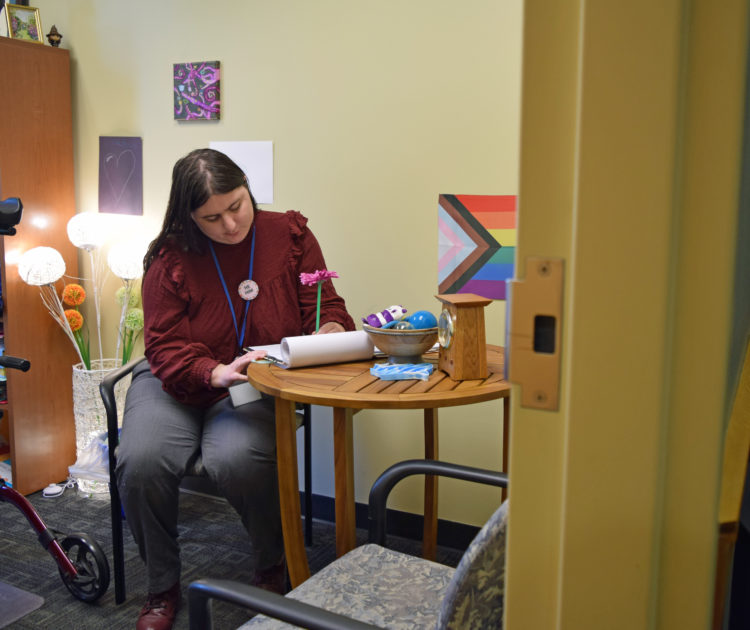Teens in Crisis
We recently read the news of yet another tragedy in our community: Another teen lost their life while participating in a Tik Tok challenge. It’s clear that teens are in crisis in this country. According to a recent New York Times article: “Over the last three decades, the major health risks facing U.S. adolescents have shifted drastically: Teen pregnancy and alcohol, cigarette and drug use have fallen while anxiety, depression, suicide and self-harm have soared. In 2019, the American Academy of Pediatrics issued a report noting that “mental health disorders have surpassed physical conditions as the most common issues causing ‘impairment and limitation’ among adolescents”’ In December, the U.S. Surgeon General, in a rare public advisory, warned of a “devastating” mental health crisis among American teens.
This can feel devastating and too broken to fix. While we can’t heal a broken system ourselves, we can take steps to keep our families safe, both online and in real life. Having an awareness of the dangers of online behavior is a place to start. According to the National Center for Health Research: “45% of adolescents report that they are online ‘almost constantly,’ and another 44% say that they are online ‘at least several times a day.’” While some online activity is generally harmless (such as emailing or looking at cat pictures or recipes), other online activities are contributing to teen depression and anxiety.
Depression & Anxiety
Many studies have found an association between time spent online as well as the number of social media platforms used and symptoms of depression and anxiety. Besides the sleep cycle being negatively affected by nighttime social media usage, teens are feeling pressure to respond to social media chats and messages immediately and it can be hard for them to put down their phones and engage in real life. Additionally, this pressure of always being available and responsive to messages online is contributing to anxiety and sleeplessness.
The National Center for Health Research states that most teens are worried about FOMO, which stands for “fear of missing out” and social media exacerbates this: “If someone sees posts about a party that they were not invited to, adolescents may be particularly vulnerable to potential negative impacts of social media because social connectedness is important for their development. Browsing social media can lead to FOMO, and the feeling of being excluded can lead to negative feelings.”
Besides FOMO, research on adolescents has found that body image is additionally harmed by social media. Teens (and adults) are constantly comparing their own bodies to those images that are highly curated and edited by others online.
“It is important for teens to remember that they are not seeing reality,” says Dr. Joshua Frank, Psychiatrist and Chief Medical Officer at Citizen Advocates. “It is often said that comparison is the thief of joy, and teens can be more susceptible to feelings of depression, anxiety or self-harm based on what we know to be false statements and reality distorting portrayals of their peers and social media personalities. The best solution to any of this is taking healthy breaks from social media, especially at night.”
Cyberbullying
Besides FOMO and body surveillance, a far more dangerous and harmful aspect of social media is cyberbullying. More adolescent research is suggesting that increased hours spent online may be associated with cyberbullying behaviors. According to a study by the University of Georgia, higher social media addiction scores and more hours spent online significantly predicted cyberbullying perpetration in adolescents. Because cyberbullying happens online and out of sight of teachers and parents, it is more dangerous and is more strongly correlated with suicide attempts than face-to-face bullying.
A recent article in the Journal of Youth and Adolescence states that girls who used social media for at least two to three hours per day were at a higher clinical risk for suicide. For those parents who are raising teenagers, we ask that you talk to your teen about their social media use. Suggest that your teen delete apps that can contribute to an unhealthy body image or feelings of inadequacy. Instead, suggest that they try a meditation or a yoga app. It can be helpful to use apps that block certain other apps and monitor your child’s screen time. Lastly, at Citizen Advocates, while we know that talking about mental health with your teen isn’t always easy, we encourage you to start a dialogue off-line. It might just save a life.
If you or someone you know is struggling with mental health, please reach out today.
Other resources for parents:
Suicide Awareness and Prevention
Do Antidepressants Increase Suicide Attempts? Do They Have Other Risks?
Mood Gym: An Online Program for Adolescents to Fight Depression
Self-Injury Is Increasing in Teenage Girls: What Can Parents Do?
https://www.center4research.org/social-media-affects-mental-health/
https://blog.pcc.com/social-media-self-esteem-and-teen-suicide
If you or someone you know needs help, call the National Suicide Prevention Lifeline at 800-273-TALK (8255). You can also text a crisis counselor by messaging the Crisis Text Line at 741741.


 Previous Post
Previous Post


